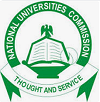NATIONAL UNIVERSITIES COMMISSION

REPORT ON ACCREDITATION OF ACADEMIC PROGRAMMES
IN NIGERIAN UNIVERSITIES
A. SUMMARY OF PANEL’S REPORT
DATE OF VISITATION:
9th to 11th December, 2024
INSTITUTION:
Delta State University Abraka
DISCIPLINE:
Sciences
PROGRAMME:
Microbiology
PROGRAMME SCORE:
64.80%
ACCREDITATION STATUS:
INTERIM
DEFICIENCIES |
REMEDIES |
|
1. General Biology I & II (BMAS), General Techniques in Botany (BMAS) and General Biochemistry Practical I & II (CCMAS) are omitted from the curriculum. 2. There was no evidence of continuous assessment conducted, and internal moderation of examinations. 3. Marking schemes are not available for all courses, while some have no marks. Also, there was bulk allocation of marks on marking schemes, examination scripts and practical manuals. 4. Practical manuals do not make adequate provision for all required practicals. 5. External examiner’s reports are not of good standard as the most recent two were not comprehensive and were repetitive of previous reports. 6. The internal quality assurance mechanism is not effective as its function is limited to vetting of results. 7. Only 43.7% of the teaching staff are core to the subject area of the programme. 8. Most of the laboratory staff do not possess professional licence. 9. 48.6% of the academic staff and 80% of the non-teaching staff have not benefitted from Staff Development Programme in the past three years. 10. Lecture theatres lack projectors, public address systems, functional light bulbs and fans, while the furniture are dilapidated. 11. Sanitation around the teaching area is poor. 12. Physical library books and journals are inadequate in coverage of subject areas of the programme. 13. Subscription to only one database that provides only open access materials, is inadequate for the programme. 14. Funding for the programme is inadequate. 15. There is no evidence of research and collaboration by staff and students with other institutions.
|
|
1. The curriculum should be reviewed in line with the BMAS and CCMAS to include all omitted core/compulsory courses. 2. Continuous assessment should be administered and documented, and examination standards improved by ensuring internal moderation. 3. Marking schemes should be well developed for all courses, and applied in the grading of students’ work. 4. The University should ensure that the manual is structured to include adequate practicals to cover the depth and scope of the programme. 5. The reports of external examiners should elaborate on the assessed parameters, the level of compliance with guidelines and the quality of the assessment and evaluation of students. 6. The University should ensure that the system is effective to impact on the programme and that activities are properly documented. 7. The University should ensure that the proportion of teaching staff core to the subject area provides for at least 75% of the teaching staff need. 8. The University should that only qualified technologists/technician are engaged for the laboratory. 9. The University should ensure that all staff benefit from Staff Development Programme. 10. Furniture items in the lecture theatres should be well maintained, while projectors, functional light bulbs and fans should be installed. 11. Sanitation of the teaching area should be improved. 12. More current books and journals should be procured for the programme. 13. The University should ensure subscription to at least two relevant databases for more robust and current electronic resources. 14. The programme should be adequately funded. 15. The University should ensure that there is research and collaboration with other institutions to serve the host community.
|
The total score for the programme is 64.80%. It scored 25 (67.57%) in Academic Matters, 20 (57.14%) in Staffing, 20 (74.07%) in Physical Facilities, 13 (72.22%) in Library. The programme scored 1 (33.33%) in Funding, 0 (0.00%) in Research and Collaborations and 2 (100.00%) in Employers’ Rating. Based on the fact that the programme scored less than 70% in any of the four core components (Academic Matters, Staffing, Physical Facilities and Library), the Panel recommended INTERIM accreditation status for the Programme.
B. APPROVAL BY THE COMMISSION
Based on further analysis of the report, the Commission upholds the recommendation of INTERIM accreditation status for the Programme
